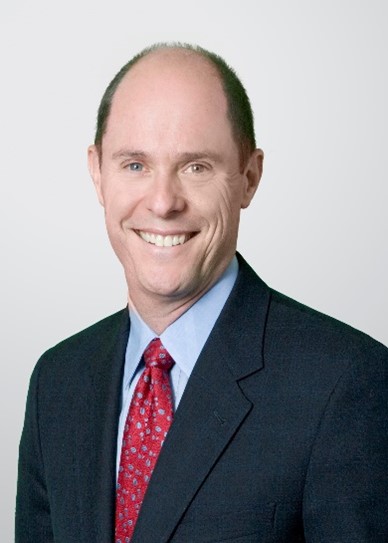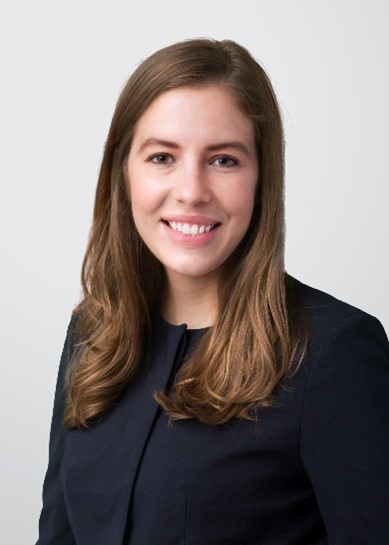

About Michael Werner
Michael Werner is a Washington, D.C., public policy and regulatory attorney and a co-leader of Holland & Knight’s Healthcare & Life Sciences Team. Mr. Werner has almost three decades of healthcare law, lobbying, regulatory and reimbursement experience in Washington. He focuses on issues affecting FDA-regulated entities, including biotechnology and pharmaceutical companies developing and manufacturing prescription and over-the-counter (OTC) drugs, biosimilars, cosmetics, dietary supplements and digital-health technologies. His specific areas of knowledge include FDA regulations regarding product approval, marketing and distribution including FDA’s use of Emergency Use Authorization (EUA); regulation and reimbursement of cell therapy, gene therapy, tissue engineering and regenerative medicine products; the Physician Sunshine Act; human subject protection issues such as institutional review board (IRB) review and informed consent; as well as conflicts of interest and other bioethics issues arising from research and uses of new technologies. Mr. Werner is the co-founder and senior policy counsel of the Alliance for Regenerative Medicine, the leading global organization representing the cell therapy, gene therapy, tissue engineering and regenerative medicine sector. The Alliance’s mission is to advocate for federal funding, regulatory and reimbursement policies to advance the field.

About Sara Klock
Sara M. Klock is a Washington, D.C., attorney and a member of Holland & Knight’s Public Policy & Regulation Group. Ms. Klock focuses her practice on food, drug and device, life sciences, and political law. Ms. Klock advises life sciences clients on regulatory matters before federal and state agencies and law enforcement authorities, including the U.S. Food and Drug Administration (FDA), the Drug Enforcement Administration (DEA), and the Federal Trade Commission (FTC). Ms. Klock advises clients on the Food, Drug, and Cosmetic Act (FDCA) and the Controlled Substances Act (CSA). She routinely performs due diligence and evaluates risks in commercial transactions. She also drafts legislation and legal analyses in support of client legislative and regulatory advocacy efforts.
Prior to joining Holland & Knight, Ms. Klock served as clerk to the Honorable Mark M. Dowd, Administrative Law Judge for the DEA, a position she was awarded through the U.S. Department of Justice (DOJ) Attorney General’s Honors Program. During law school, Ms. Klock served both as the Senior Writing Editor and as an Articles & Comments Editor for the University of Miami Law Review. She also was a Research Assistant for and participant in the LawWithoutWalls program, a cross-disciplinary, cross-cultural, part-virtual experiential learning program where participants are tasked with creating a Project of Worth. Ms. Klock’s project focused on creating a supply chain management tool, designed to create more uniform ethics and compliance standards for small- and medium-sized suppliers.

About Holland & Knight
At Holland & Knight, we put our legal knowledge to work for you in a practical manner. We know that in order to be the best value to you, we must first provide personalized solutions tailored to your needs. With more than 1,400 lawyers in our U.S. and international offices and legal colleagues in over 40 countries around the world, Holland & Knight serves clients globally. Our clients recognize the ability of our firm to consistently provide excellent value in a variety of areas that range from commercial litigation, regulatory matters, mergers and acquisitions, real estate and government advocacy.
With 27 offices around the globe, we are committed to providing the highest quality legal counsel combined with the utmost in client service – across state and national borders – in a seamless, cost-effective manner. This level of legal guidance, combined with our interdisciplinary structure and the firm’s global network, is your assurance of high-quality resources when and where you need them.
Our lawyers are consistently recognized as leaders in the legal profession, earning accolades for service, responsiveness, results and pro bono commitment.
Our mission is to provide seamless, efficient client-centric services over a wide range of industries. Collaboration across practices and offices, along with highly focused management of matters and cases, enables us to deliver dynamic legal support, regardless of location. Visit us at https://www.hklaw.com/.
Medical Travel & Digital Health News (MTDH): Let’s talk first about your interest in healthcare and digital health.
Michael Werner (MW): I’ve been a partner at Holland & Knight for almost a dozen years, an attorney in Washington, D.C., a healthcare lawyer in Washington, D.C. for over 30 years and involved with a variety of healthcare issues, mostly about access to care, healthcare technologies and products.
I also have a lot of experience in the biotech industry and, since coming to Holland & Knight, a heightened interest in the medical device industry with the confluence of all of the technologies for information, medical devices and healthcare. In addition to being a lawyer, I have a bioethics background, so the issues around law and medicine and new technologies are of particular interest to me.
Digital health is a new frontier that is revolutionizing healthcare. I like the opportunity of working with product developers who are changing healthcare for the better.
Sara Klock (SK): I have a background in controlled substances and am an FDA lawyer by training. I focus on all things FDA, from food to devices to drugs.
About a year ago, the FDA’s digital health policies had shifted and became clearer. The evolution that’s occurring at the FDA on how to deal with these types of technologies presented an opportunity to dig in a little deeper and stay up to date.
MTDH: Please give our readers a little bit of an overview of digital health regulations.
MW: While the FDA regulates many digital health products as medical devices, it does not subject all such devices to the same requirements as other medical devices. FDA’s requirements are based on a product’s intended use. This affects the FDA’s regulatory classification of a product and therefore the requirements that manufacturers, distributors or users have to meet.
There are some digital health products that need to have pre-market approval before they can be sold in the United States. For example, the Apple watch had some functions that required pre-market approval from the FDA to market the product.
There are other kinds of digital products that fall outside the definition of a medical device. Products that monitor your “steps” or other such tools are typically not regulated by the FDA because they are considered low risk.
A third type of product is a product that FDA regulates as a medical device but does not require pre-market approval. In these cases, the FDA uses what it refers to as enforcement discretion. Basically, it won’t object to the marketing of a product. However, the FDA recommends manufacturers undertake many of the same activities that other device manufacturers are required to perform.
In the context of the pandemic, FDA has used its Emergency Use Authorization authority to allow unapproved products to be marketed because the Agency makes a judgment call that the potential benefits outweigh the potential risk.
It depends upon the situation.
MTDH: What about a telehealth solution?
SK: This is where it can get murky.
If it’s only an electronic health record, then it likely falls outside of device regulation. But if it connects to a device and transmits or displays information from a medical device, then it likely would require pre-market approval, depending upon the type of technology.
MW: To take an extreme example, if my doctor calls me to give me some medical advice, that phone is not meant to be a medical device.
But if you’re talking about technology that records vital signs transmitted to a doctor to be used for diagnosis, this would be regulated.
MTDH: What is the potential liability for a telehealth provider?
SK: The FDA has some typical enforcement actions that they take.
Typically, if the FDA were to take enforcement, they would first issue a warning letter or an untitled letter to the manufacturer, possibly forcing the manufacturer to take corrective action.
They may issue an FDA Form 483 at the conclusion of an inspection when an investigator(s) has observed any conditions that in their judgment may constitute violations of the Food Drug and Cosmetic (FD&C) Act and related Acts.
The FDA can enforce civil or criminal fines, but that’s not common. The most typical route is that the FDA approaches the manufacturer to become compliant with FDA rules.
MW: The telehealth provider should always perform due diligence to make sure that their vendors and digital service/technology providers are meeting appropriate regulatory requirements.
Sometimes, the technology doesn’t need pre-market approval from the FDA. But it is always in the telehealth provider’s interest to make sure that the technology is in compliance.
It may be that the telehealth provider wants to do its own analysis and say, “Is this the technology we need?” They may ask the vendors what their regulatory status is and what kind of legal advice they’ve gotten about this.
To avoid a lawsuit, it is always incumbent upon the telehealth provider to make sure that they ensure the technology or device meets FDA requirements. The provider must make sure they are in compliance with all the rules around practicing medicine and pharmacy licensure—and a whole set of legal issues that don’t involve the FDA digital health regulations.
They also need to know what states allow for telehealth and interstate medical consultations.
SK: We see clients in the telehealth space that start to get into the FDA regulatory world when that telehealth platform interfaces in some way with a medical device.
MTDH: With the growth of digital health, telehealth, as well as medical devices, the first call before doing business should be to Holland & Knight to get the proper guidance on how to go about all this?
MW: Correct. We will do an evaluation of the technology and the business plan and provide a roadmap for how to ensure regulatory compliance.
SK: Our typical analysis would include determining the product category and, if it is a medical device, explaining how the FDA regulates it. Then, if the FDA does regulate it, we explore how the company can stay in compliance with FDA rules and requirements.
MTDH: Is there anything else that you would like to tell our audience in terms of the global implications?
SK: Any product that touches the U.S. market and any company that manufactures a product that touches the U.S. market should be aware of the rules and regulations.
Even if it doesn’t touch the U.S. market, it may tangentially, so that company should educate itself.
MW: Also, there are particular rules around not just marketing the product in the United States, but also importing to the United States.
The FDA has particular regulations about registration to avoid the product being held up at the port by US Customs. As the technology evolves, the regulatory environment will also be evolving. I think it’s fair to say that the FDA is interested in ensuring that their regulations not only protect health and safety, but also promote innovation.
While there are lots of rules that manufacturers need to be aware of, the business environment in the United States is going to be supportive of innovation and growth, making this an attractive time to get into this space.